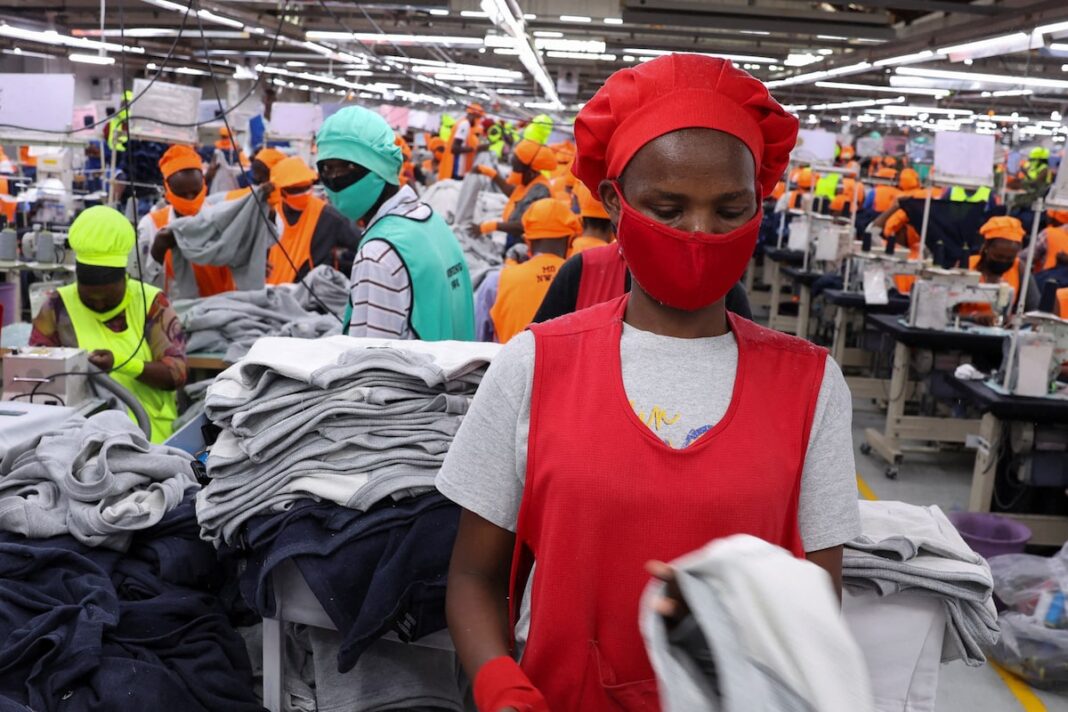The Expiry of AGOA: A Turning Point for African Trade
A Critical Trade Agreement Lapses
In September 2025, a pivotal moment for African manufacturers unfolded as the African Growth and Opportunity Act (AGOA) expired without renewal. This U.S. trade agreement, launched over 25 years ago to stimulate trade between the United States and African nations, has significantly shaped economic landscapes across the continent. Its abrupt lapse at midnight on a Tuesday created ripples of concern not just in Africa but also within the United States, where many are predicting substantial job losses.
The Importance of AGOA
AGOA has been a cornerstone of trade relations, eliminating duties on thousands of African products and injecting approximately $10 billion annually into the economies of 32 African countries. From the garment factories of Kenya to auto assembly plants in South Africa, AGOA has been instrumental in sustaining hundreds of thousands of jobs. Its termination is poised to jeopardize this employment, with predictions of looming layoffs already circulating.
Job Losses on Both Sides
The ramifications of AGOA’s expiry extend beyond African borders. Democratic members of the U.S. Senate Foreign Relations Committee estimate that about 300,000 jobs in the United States could be at risk due to disruptions in supply chains and increased costs. The lapse in trade agreement threatens to create an economic vacuum that may inadvertently benefit competing nations like China, which could capitalize on the reductions in U.S.-African trade.
Political Negotiations and Legislative Gridlock
Despite extensive lobbying efforts from both African leaders and U.S. business groups for a renewal, the U.S. Congress was preoccupied, leaving AGOA to expire. Some lawmakers have expressed intentions to explore retroactive extensions later in the year. However, this uncertainty hangs heavily over African manufacturers, leading to hesitance in investment and hiring decisions.
Economic Impacts Across Africa
Pamela Coke-Hamilton, executive director of the International Trade Centre, painted a somber outlook on the consequences of AGOA’s expiry. She warned that African nations, particularly those dependent on light manufacturing, could see their exports to the U.S. plummet by 21% over the next four years. South Africa, the continent’s most industrialized nation, may face a 17% drop as industries reliant on apparel, textiles, leather, and processed food begin to show signs of distress.
The Need for Predictable Trade Access
The uncertainty stemming from AGOA’s lapse undermines stability in trade policies that many African nations count on for investment planning. Samson Asaki Awingobit, of the Ghana Importers and Exporters Association, emphasized that the unpredictability is a “real, present risk,” detrimental to both local businesses and international investors.
Calls for Renewal
In light of these challenges, calls for renewing AGOA have intensified. South African President Cyril Ramaphosa reached out to U.S. investors, highlighting that keeping predictable access to the U.S. market is crucial for both African exporters and American companies that rely on those imports. Furthermore, support for an extension has been reported among U.S. lawmakers, although the timing remains uncertain.
The Role of U.S. Business Groups
U.S. lobby groups, including the U.S. Chamber of Commerce, are also rallying for AGOA’s renewal. They argue that thousands of American companies benefit from trade partnerships established through AGOA, and its expiry raises questions about the reliability of U.S. businesses as partners in Africa. The American Apparel & Footwear Association echoed frustration over AGOA’s expiry, suggesting that it weakens alternatives to Chinese manufacturing.
Future Trade Relationships
As the dust settles on AGOA’s expiration, the path forward for U.S.-Africa trade remains unclear. The need for renewed agreements that promote mutual economic benefits has never been more pressing. Until political landscapes shift and new agreements are ratified, African manufacturers will navigate a new reality filled with uncertainty, and the repercussions of reduced access to key markets will continue to amplify.



